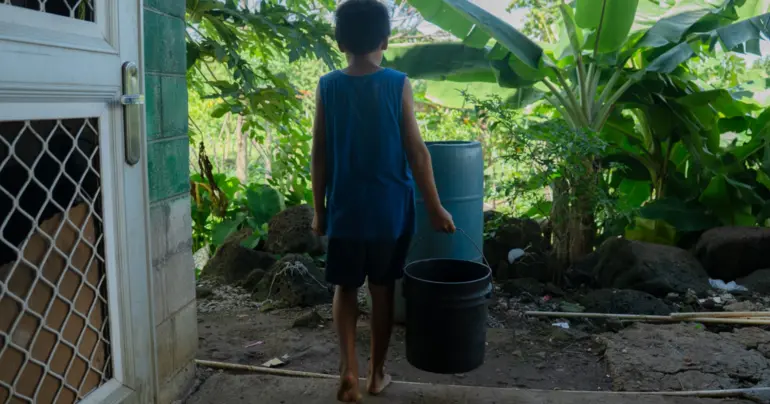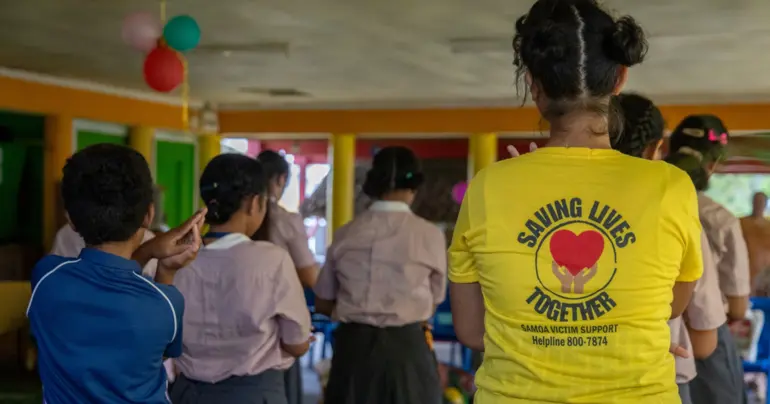Cooperation not control the way to tame social media
 By The Editorial Board
•
14 August 2020, 11:50PM
By The Editorial Board
•
14 August 2020, 11:50PM
And so Samoa has returned again to the vexed issue of how to deal with offensive material popping up on social media sites such as Facebook.
A story on the front page of Thursday’s edition of the Observer provided an insight into the Government’s latest line of thinking on how to respond to the proliferation of offensive material online: to force multi-billion dollar social media companies to incorporate local branches and face local laws (“Tech giants will answer to Samoan courts of law”).
Setting aside the practicality of the plan outlined by the head of the Ministry of Communications Ministry of Communications and Information technology, Fualau Talatalaga Mata’u Matafeo, we can understand his instincts.
The abuse of online media in Samoa and around the world is revealing dark aspects of human nature.
Despite being used mainly for harmless purposes it is also propagating offensive and defamatory material far too regularly - which is often a consequence of the ability of users to make posts anonymously.
The most famous case of which internationally was the Christchurch massacre, a shooting rampage that was streamed live on Facebook as it took place.
But Samoa has been exposed to several examples of its own disturbing material spreading online.
Most recently a video showing the torture of a young man who was begging for his life was been widely shared on Samoan social media channels.
The Police Commissioner, Fuiavaili’ili Egon Keil, has warned the public against sharing the chilling video.
“It’s not right, you can look at it in any way you like but it’s not good,” the Commissioner said.
“You have to think, if it was your brother or your son, you do not want to embarrass him like that.”
We agree.
And the sharing of abhorrent material is becoming a disturbing and all-too-frequent event in Samoa.
Last September the heart-wrenching photo of a dead and abandoned baby at the Mulifanua Wharf spread around Samoan social media like wildfire.
And earlier this year a video of a horrific video showing a violent incident at Malifa that left a woman murdered and a man dead was also spread widely online.
The idea to simply turn off the tap on material of this nature and forcing social media companies to comply with Samoan laws is a simple fix to a complicated problem. But unfortunately for the Government's policy makers it is neither likely to work or solve the problems they are setting out to.
The speed with which information now flows makes controlling media exceptionally difficult.
Technology giants such as Facebook and Twitter have been criticised by lawmakers worldwide for the amount of defamatory, false and racial hate material that proliferates on their platform.
Recently they have been making an effort to do something about it.
But they have noted that the difficulty they face is the sheer flood of material coming in to review.
Returning to the Christchurch massacre, Facebook said that it removed more than 4.5 million posts containing material connected to the terror attack in six months alone.
The ability for these companies to develop automatic tools that can detect hateful or abhorrent or offensive material and delete it before it is posted is improving.
But the challenge is no easy task.
There are 2.7 billion monthly active users of Facebook worldwide.
With a staff of 45,000 it is highly unlikely that Facebook is going to be able to keep up with local law enforcement requests - at least not in a timely manner.
The social media companies’ recognise that developing automatic means of blocking offensive material is the only realistic solution to the problem of offensive posts.
Facebook has recently been cracking down on white supremacist material, using certain catchwords to prevent posts that contain racial hatred.
It has no doubt had an effect on the neo-Nazi groups who perpetuate such hate.
But they have also no doubt simply shifted to new platforms.
Nearly entirely unmoderated social media services such as Twetch and Gab and Telegram have become the new home for this far-right hate.
The Chief Executive Officer of Vodafone Samoa, Nofoasaefa Satish Kumar, expressed similar sentiments earlier this month when he noted that users can and do regularly switch between social media platforms.
“If something gets closed down, something else will open up, so people will keep using [social media] because there are hundreds [of] other things for…but depends upon what purpose you are using [it] for,” Nofoasaefa said.
That makes the efficacy of banning any one platform questionable. Experts have also said bans are easy to circumvent by internet users.
We, like all nations worldwide, are grappling with the difficulties posed by disturbing material online.
In France and Germany, where denying the holocaust ever took place is a crime, Facebook has complied with requests to remove material in breach of such laws. In 2014 that amounted to the removal of a total of 160 posts.
Which brings us back to the Government’s plan to force Facebook to register locally so that it may be compelled to comply with local laws or (presumably) face fines.
Facebook selectively complies with local Governments when it receives requests to take down material albeit not entirely.
The company says it is “open” to requests form Governments but not committed to them.
How likely is it, then, that Facebook is going to comply with a request from the Samoan Government to incorporate locally and expose itself to the risk of fines or even criminal penalty for local staff?
The odds seem long to say the very least.
There is no country in the world in which Facebook is moving fast enough to filter the sheer volume of information that pours onto its platform.
That it would take orders from Samoa, then, seems like a pipe dream.
A number of social media companies already do not bother to offer their products in Samoa, such as YouTube’s premium service, because our market is simply too small.
Instead of making demands, Samoa has a better chance of achieving change by building relationships with social media platforms and opening channels to help them build the tools to detect offensive content.
Heavy handed measures are easy to circumvent or likely to simply send users elsewhere.
But negotiating with companies like Facebook and, say, having input into the development of Samoan language-based filters for offensive posts is much more likely to effect change.
 By The Editorial Board
•
14 August 2020, 11:50PM
By The Editorial Board
•
14 August 2020, 11:50PM










